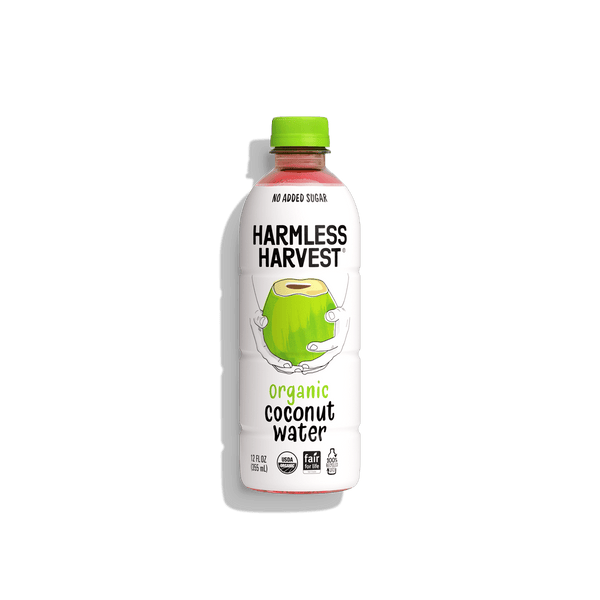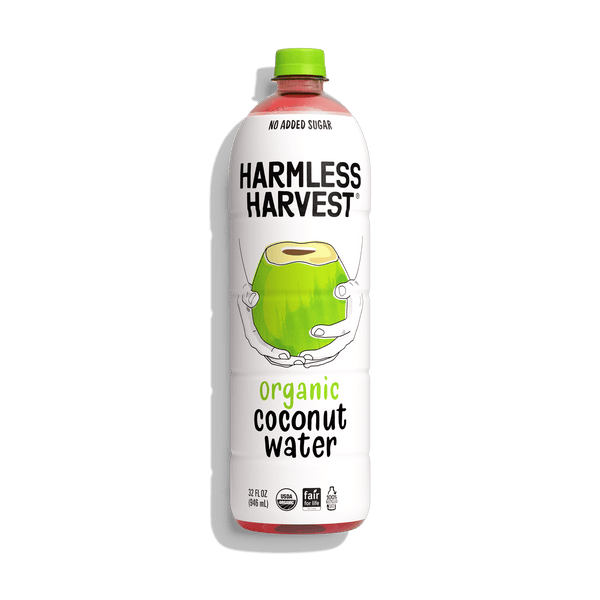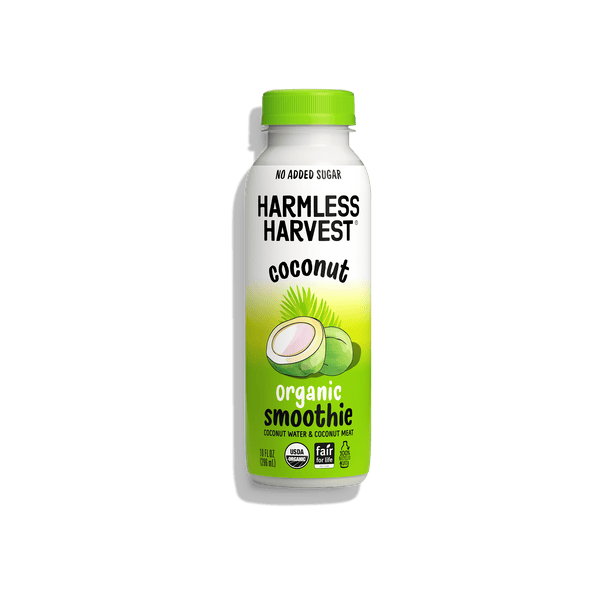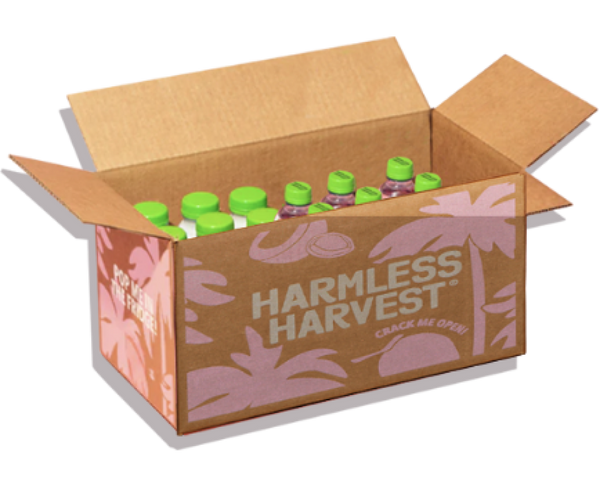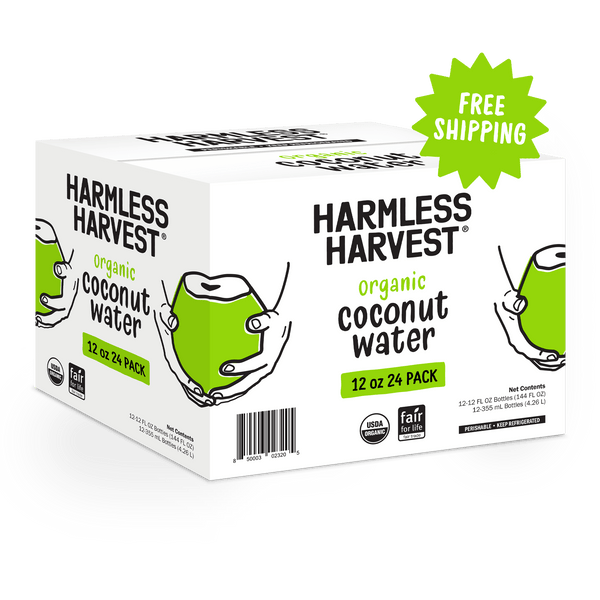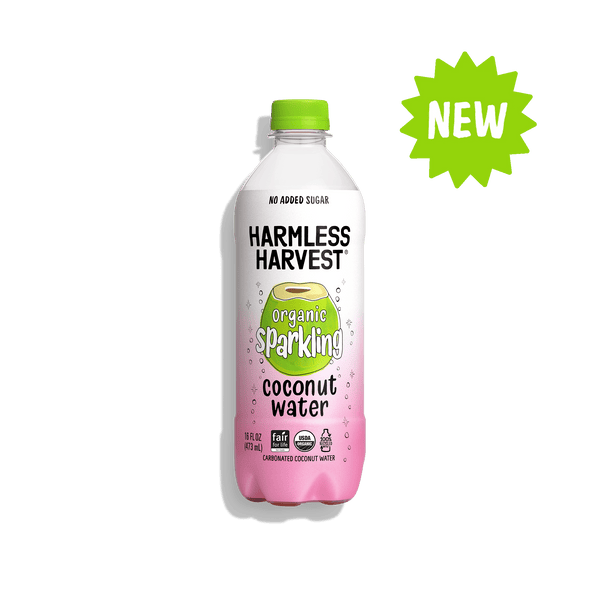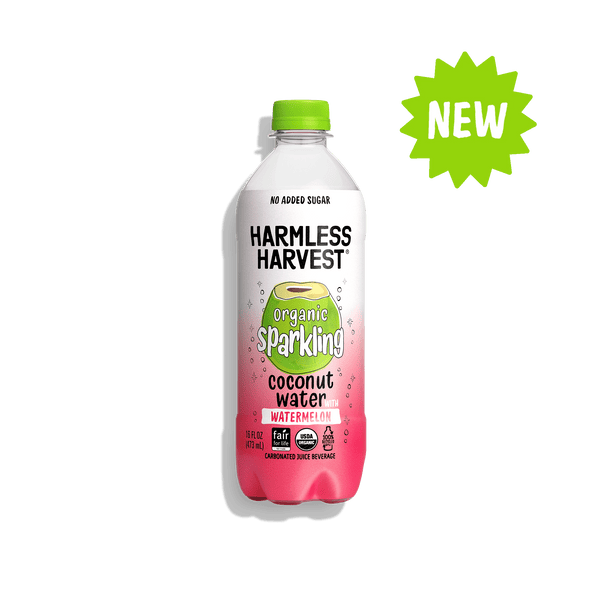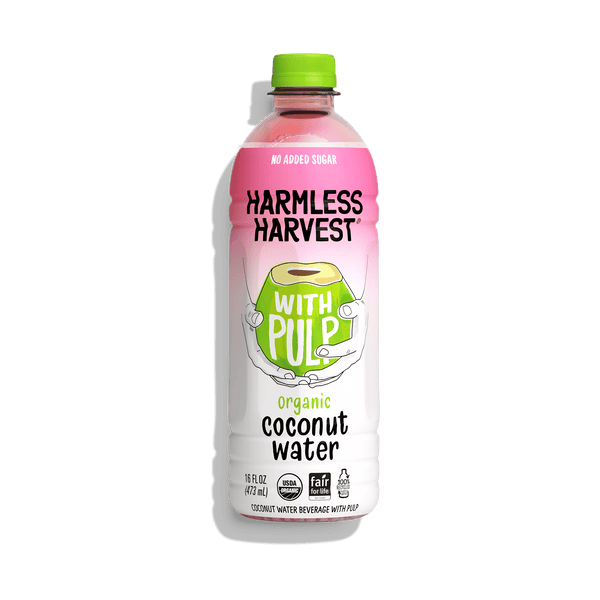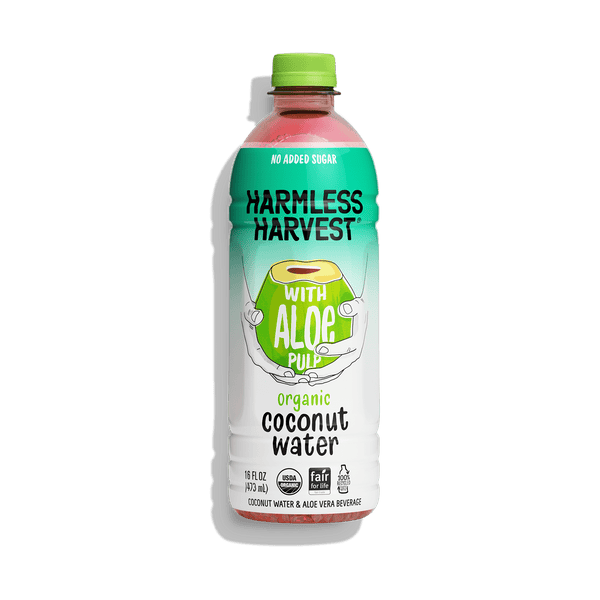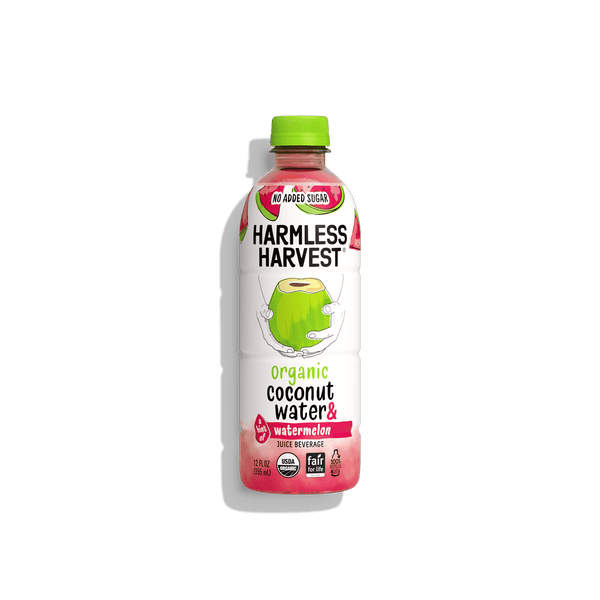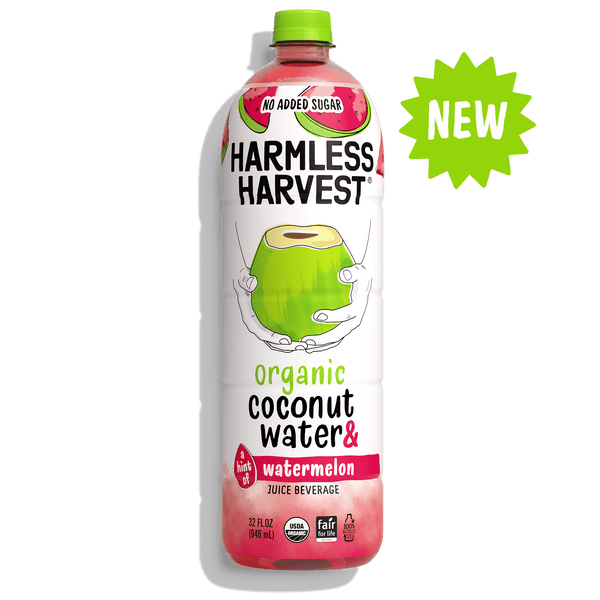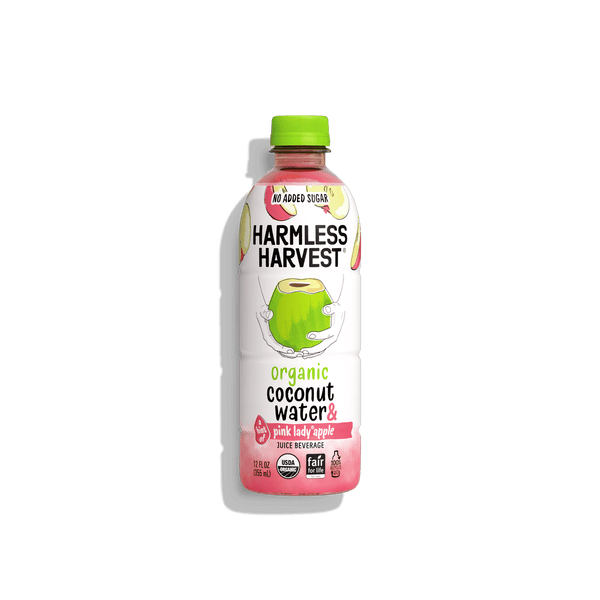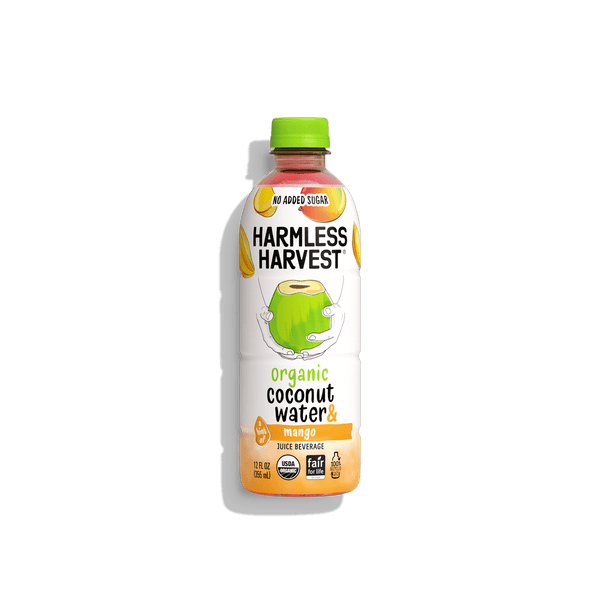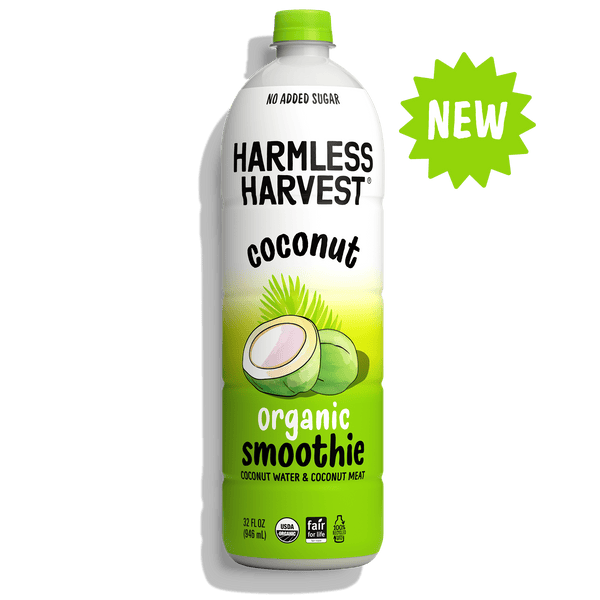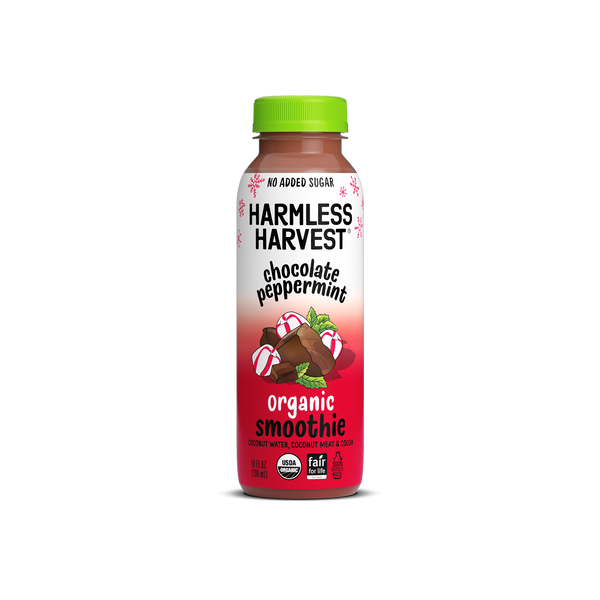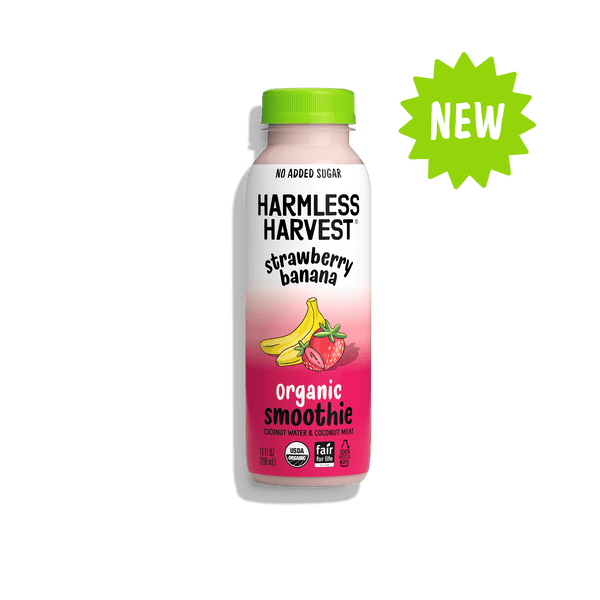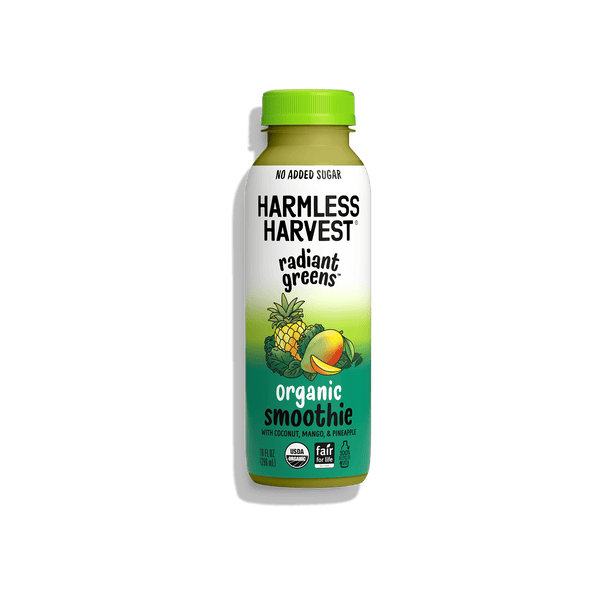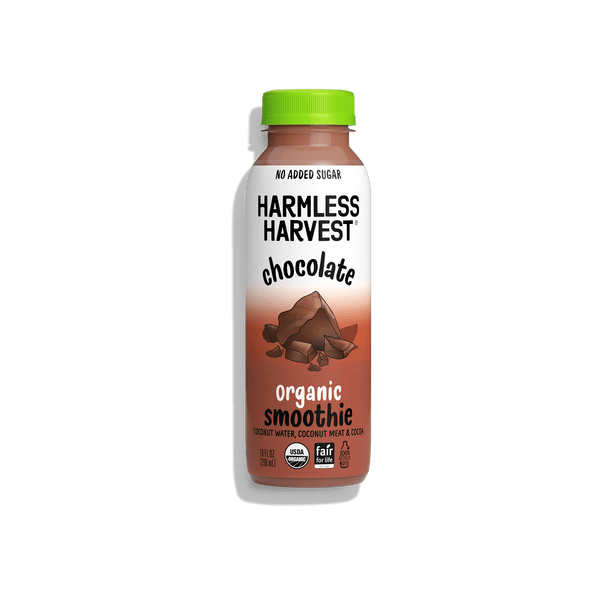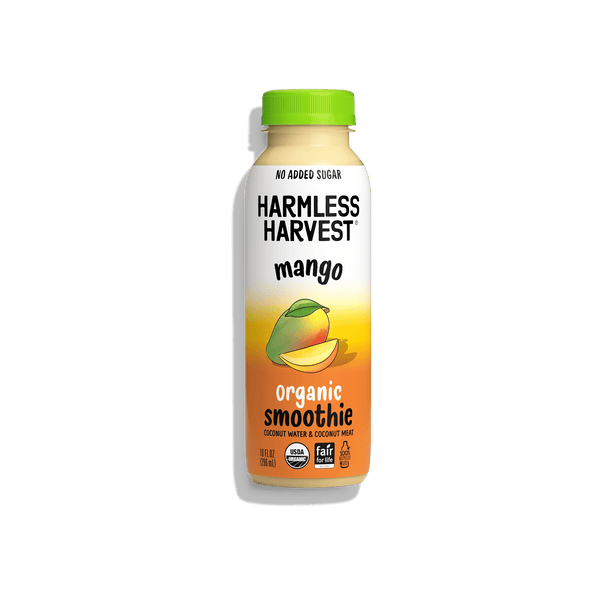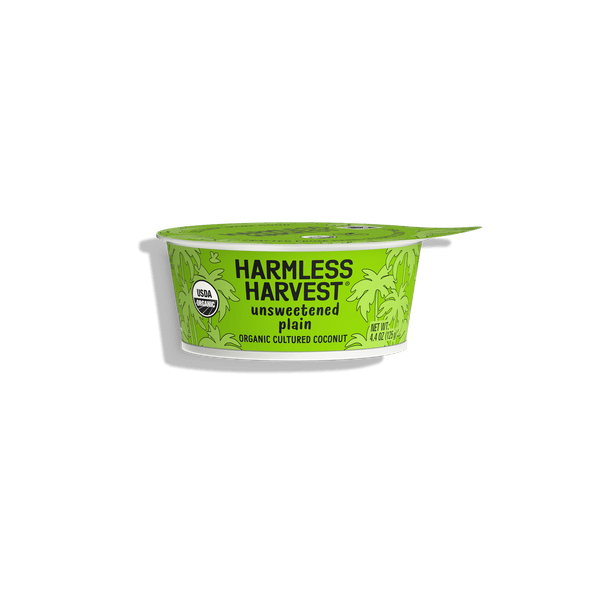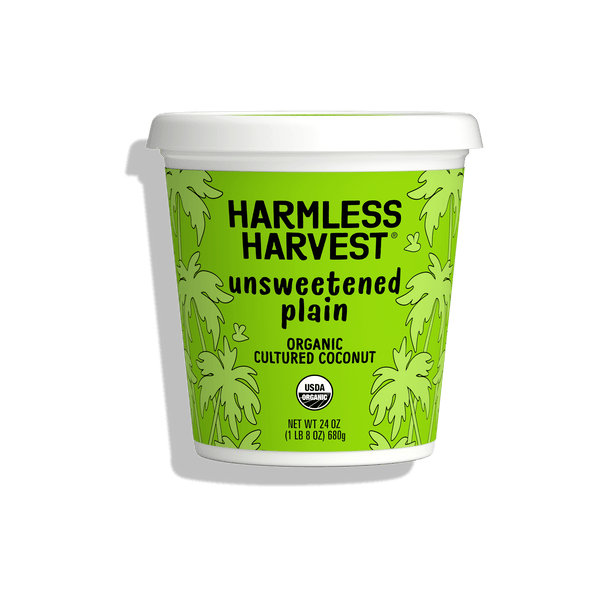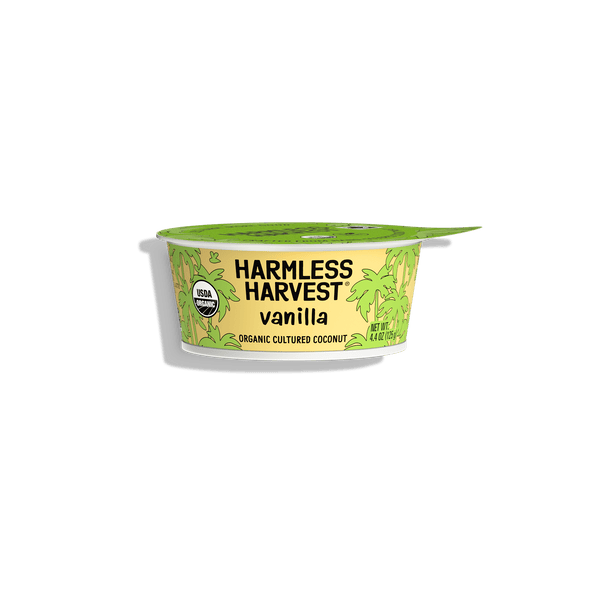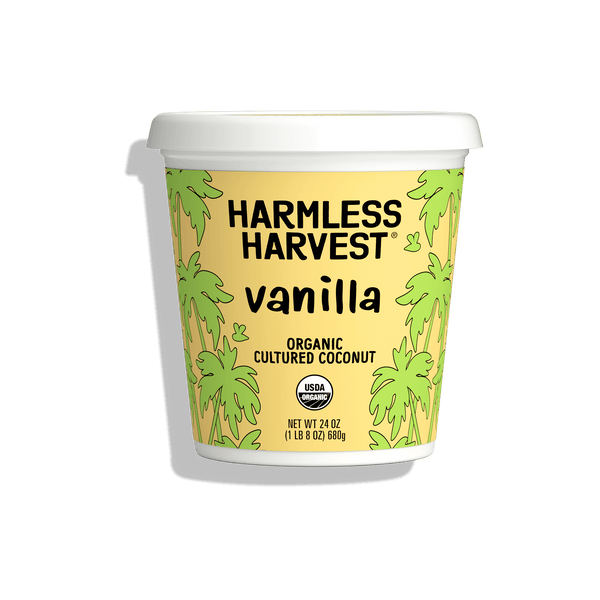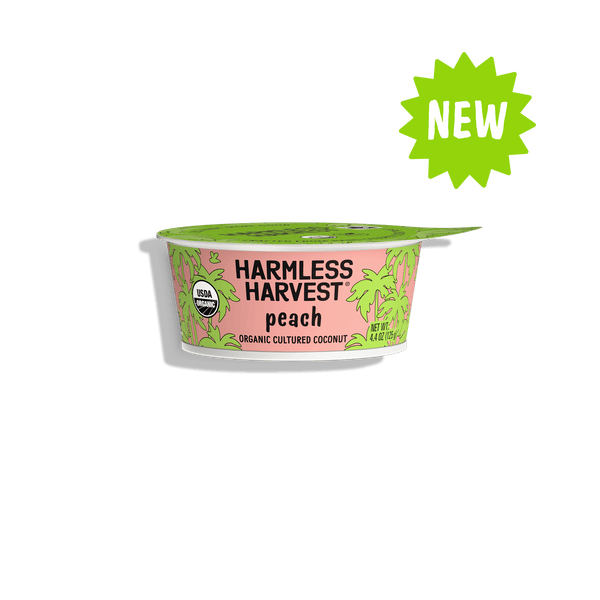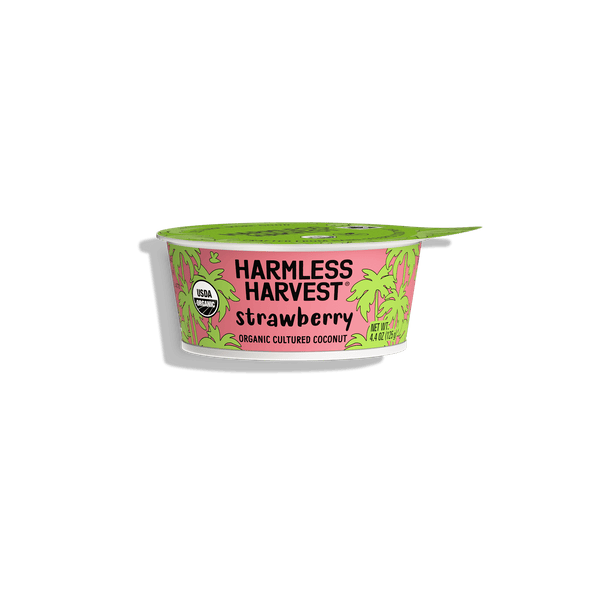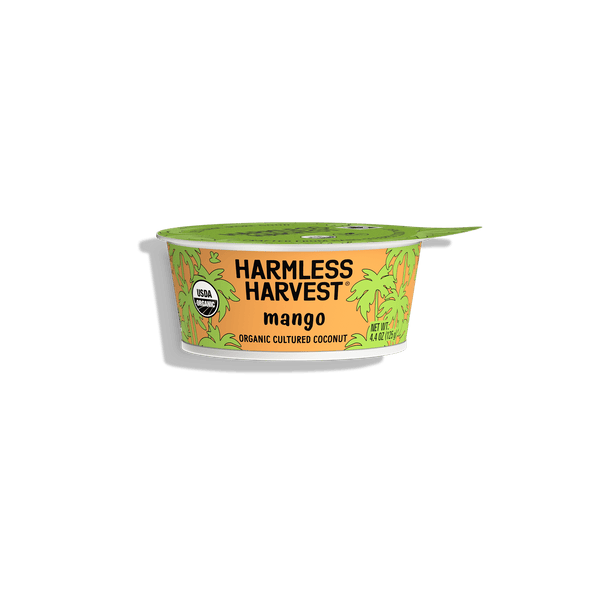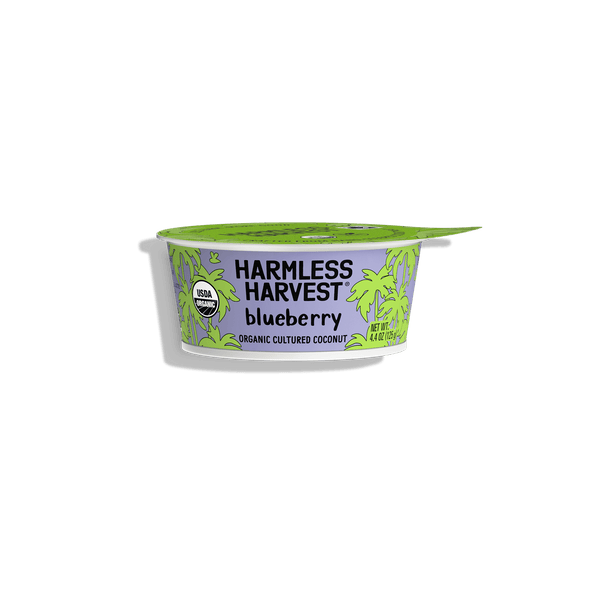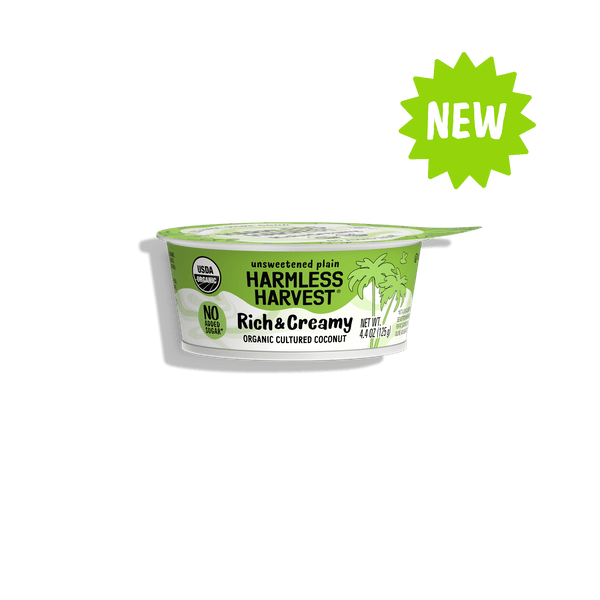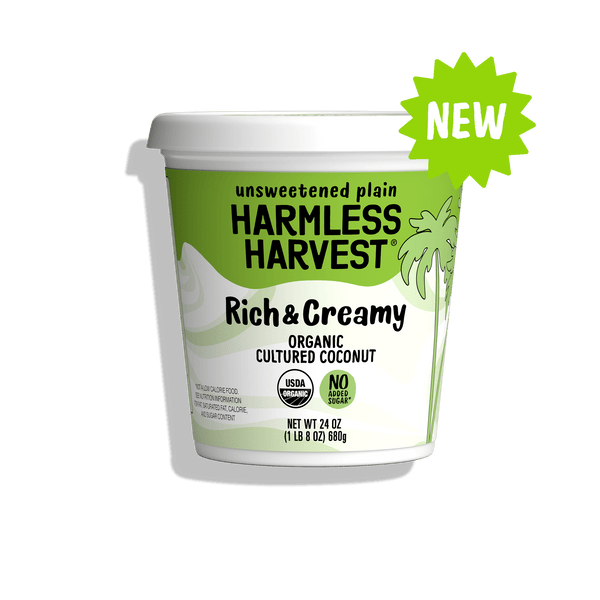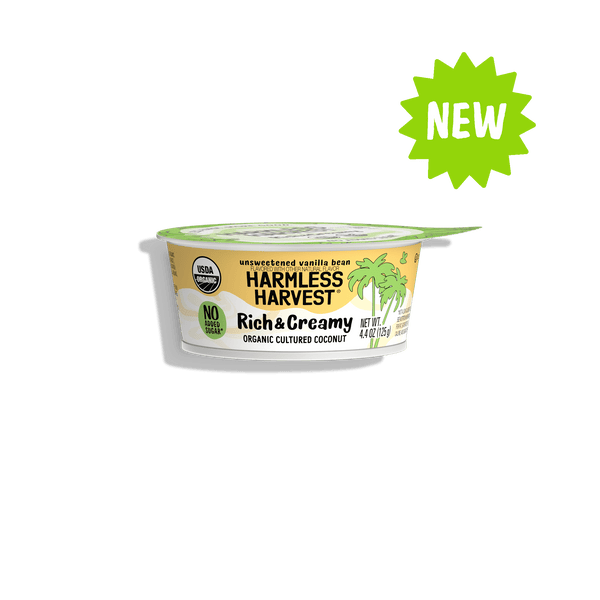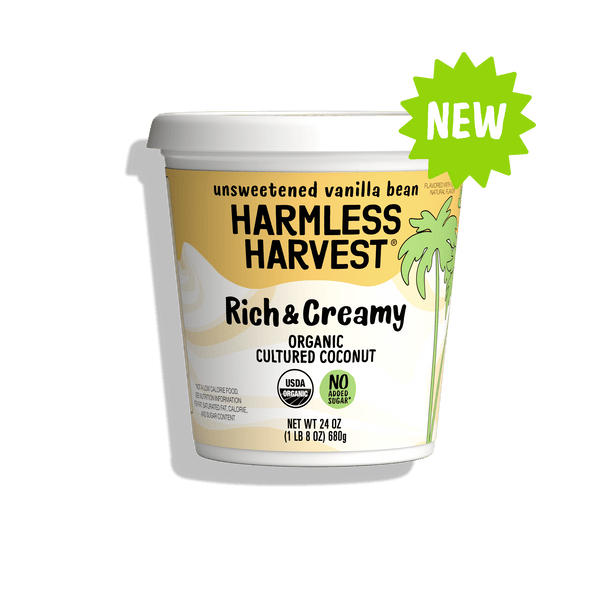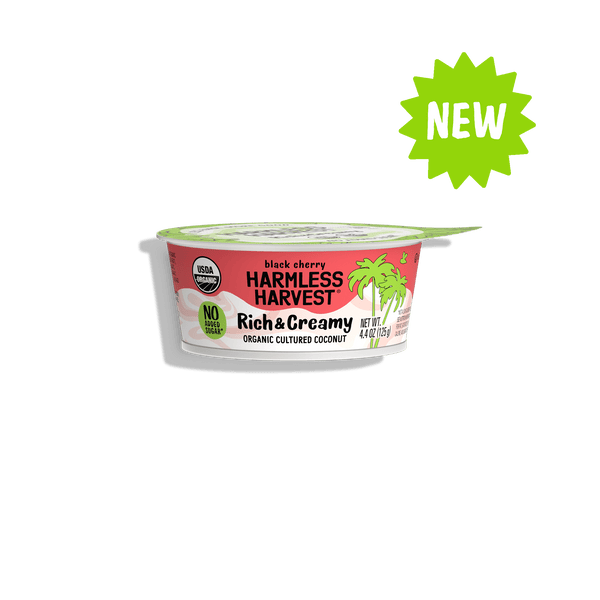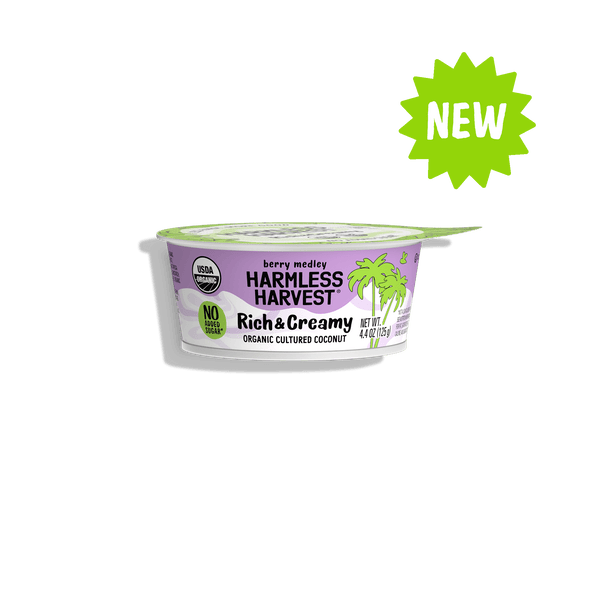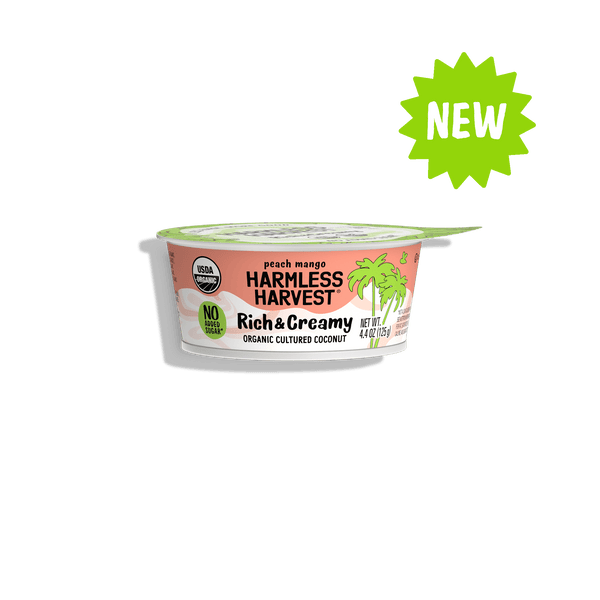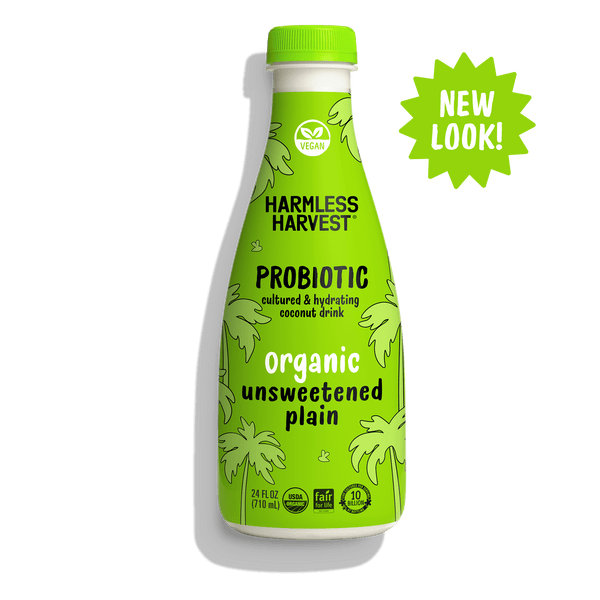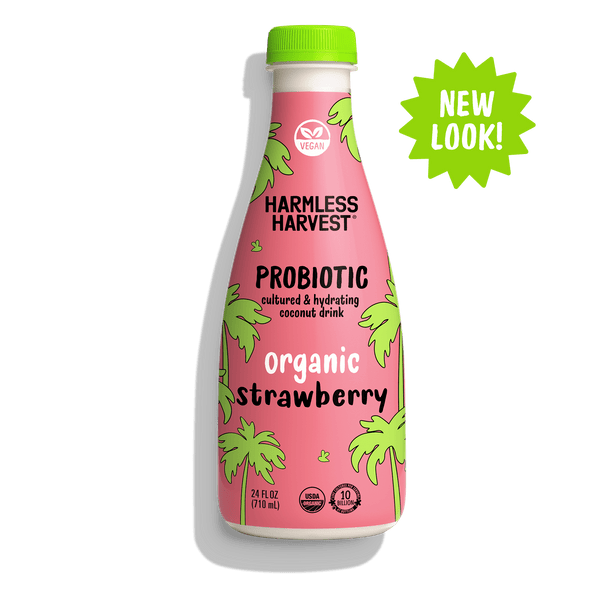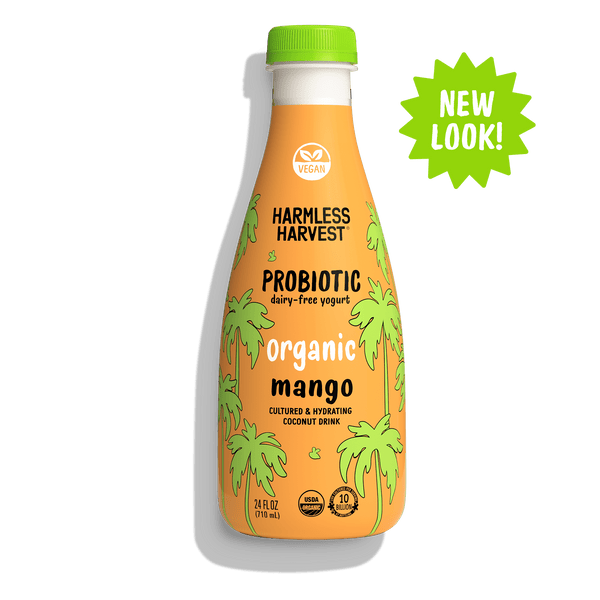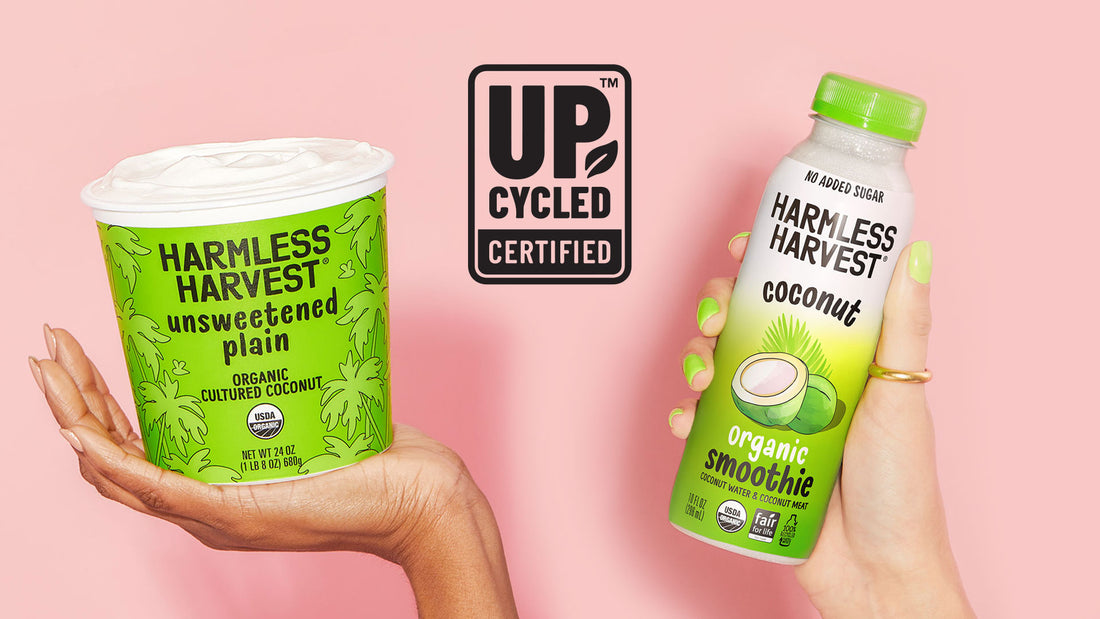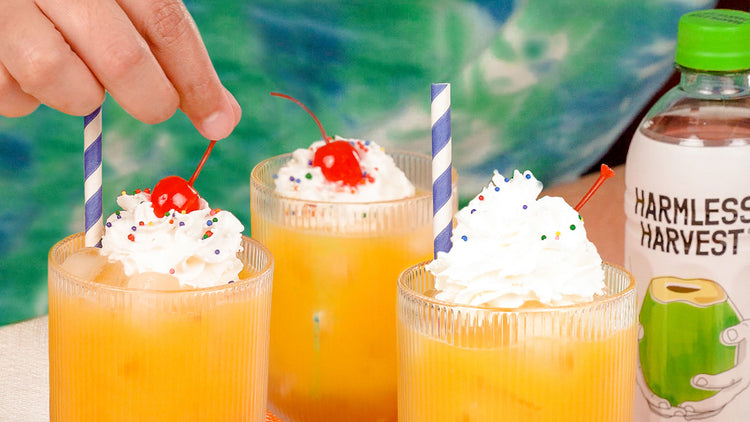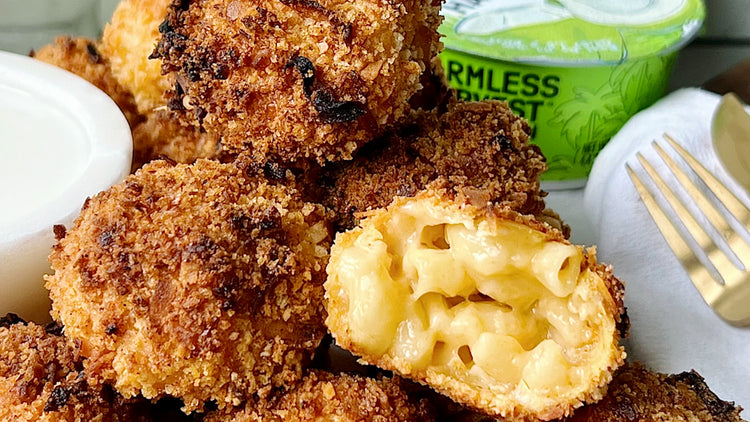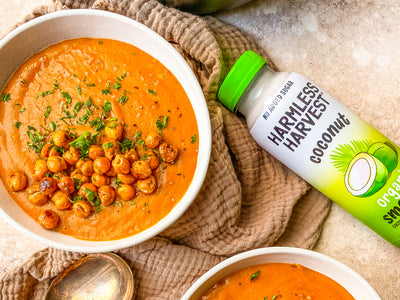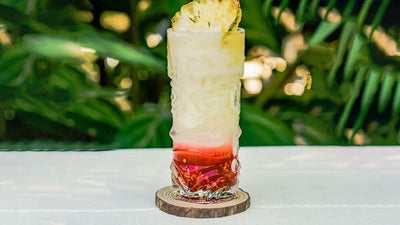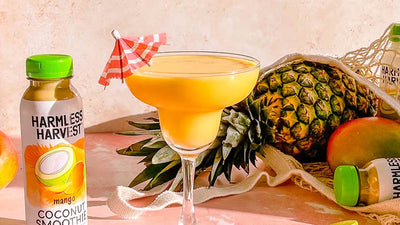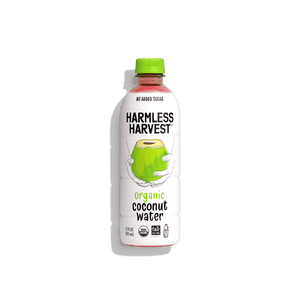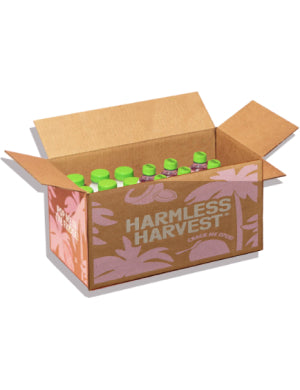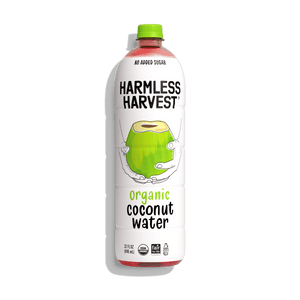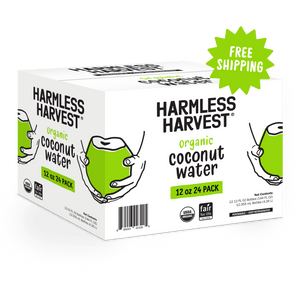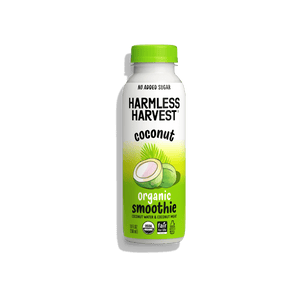We have news! Each of the products in our delicious smoothie and non-dairy yogurt families are Upcycled Certified (check out the UpCycled logo on our packaging!), meaning they are currently made using only upcycled coconut meat. This major move puts us well on the way towards our ultimate goal of zero coconut waste to landfill by 2025, and is a victory for the planet as well. Want to know why this is such a big moment? He’s a breakdown of why we’re celebrating.

What’s Up with Upcycling?
The quick definition of upcycling is: using surplus food to create new products, and by doing so, preventing food from being wasted. This idea may be unique in our modern era, but in ancient times, it was standard practice to use every part of the plant you possibly could.
So how do we upcycle at Harmless Harvest? By transforming coconut meat into so much more. When using young Nam Hom coconuts to make our pink organic coconut water, we take things to the next level by scooping excess meat and turning it into a tasty, non-dairy yogurt alternative and smoothies.
It may seem simple, but it has a big effect on our environment. According to Project Drawdown, 8% of human-caused greenhouse gas (meaning, carbon emissions created by human activities) come from food loss and waste. That’s why reducing food waste is considered the single greatest solution to climate change.

Regenerating Farming for the Win
Upcycling coconut meat into tasty new treats is huge, but that’s not the only way the coconuts we harvest get a second shot at greatness.
To make our products, we partner with regenerative farms in Thailand that utilize sustainable practices to get the job done—the benefits being a much lighter impact on people and the planet. We’re talking about not only reducing greenhouse gas, but sequestering excess carbon dioxide into the soil as well (preventing it from entering the atmosphere!).
The practices used in regenerative farming also aim to improve soil quality and enhance biodiversity, for a healthier farm ecosystem. In other words: these farmers are helping nature take care of itself. Some of these sustainable farming methods include:
- Using crop covers to improve the soil’s texture and increase the amount of water it can retain, making it healthier and more fertile This also increases the amount of living roots that will help sequester carbon in the soil—keeping it out of the atmosphere.
- Making nutrient-rich compost goodness using excess plant materials—in our case: coconuts, coconuts leaves, and animal poo! This organic brew is great for feeding the tiny microorganisms, as well as encouraging carbon sequestration in the soil.
- Integrated pest control is a sustainable approach where uninvited guests are kept at bay using biological, cultural, physical and chemical tools in a way that minimizes economic, health and environmental risks.
When these sustainable farming techniques are combined, the farm ecosystem becomes much more balanced and resistant to the negative effects of climate change. And we call that a win.

The Future
While we’re very proud of our Upcycled Certification status for our coconut smoothies and non-dairy yogurts, we certainly aren’t slowing down now. In fact, we're committed to hitting our goals of zero waste, carbon neutral, better-for-all-of-us business. And with milestones like these, we’re well on our way!

